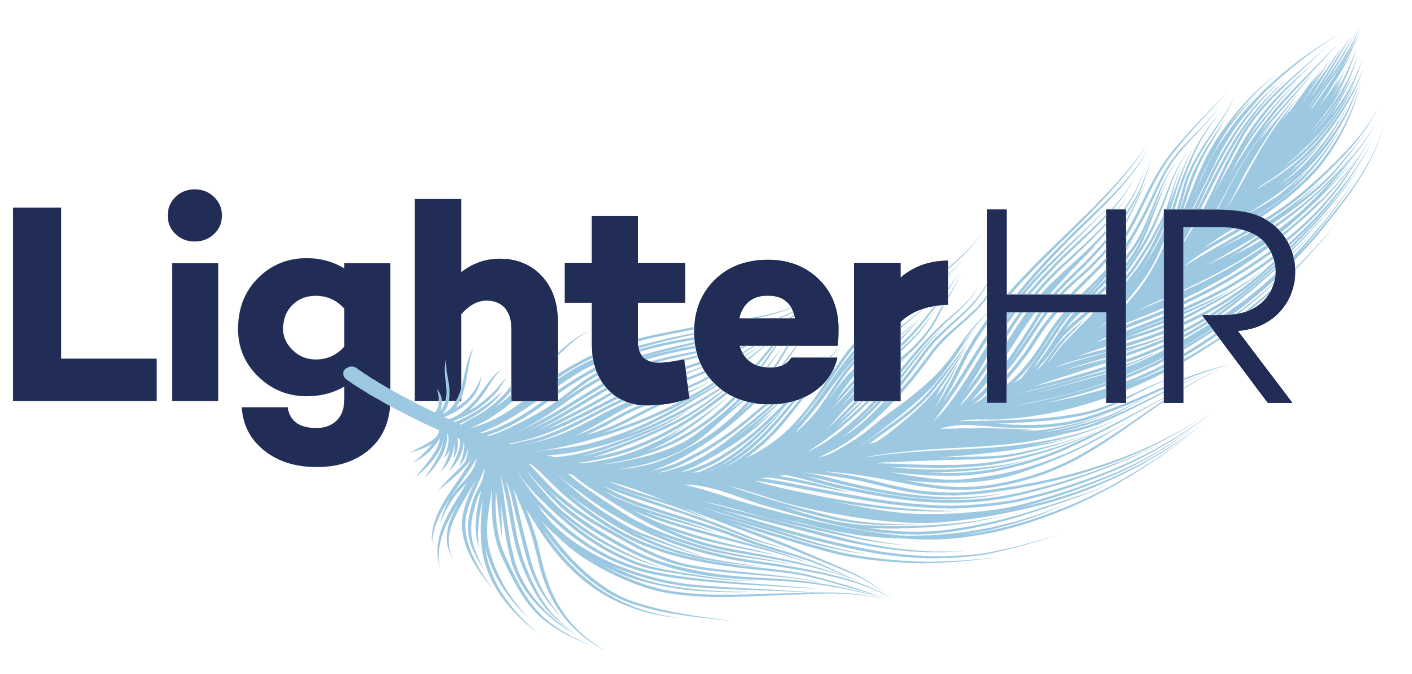Guidance on Fractional HR Director
As your business grows, people management becomes more demanding. The team gets bigger, managers need more guidance, and HR challenges start taking time and focus away from growth and performance. At some point, you realise that HR needs to be more strategic — shaping the organisation’s future rather than reacting to today’s issues. But hiring a full-time HR Director isn’t practical or affordable for most SMEs.
That’s where a Fractional HR Director can make all the difference.
In this guide, we’ll explore the signs that your business might be ready for senior-level HR leadership, what a Fractional HR Director actually does, and how this kind of support can transform the way you manage people and performance.
Recognising the Signs That You’ve Outgrown Basic HR Support
In the early stages of a business, HR tends to focus on compliance and administration — ensuring contracts are in place, payroll runs smoothly, and the occasional employee issue is handled correctly. But as your business scales, HR becomes less about policies and paperwork and more about people, planning, and culture.
You might start to notice that:
- Managers are spending more time resolving people issues than leading their teams
- HR activity feels reactive rather than proactive
- You’re unsure how to align people priorities with commercial goals
- Recruitment or retention challenges are limiting growth
- There’s no clear succession plan or structure for the future workforce
- Leadership discussions about “the people side” feel uncertain or ad-hoc
If these sound familiar, your business has likely reached the stage where you need strategic HR input — not just operational support.
What a Fractional HR Director Actually Does
A Fractional HR Director provides the same senior-level insight and leadership you’d expect from a full-time HR Director, but on a part-time or project basis. They combine deep HR expertise with commercial awareness, working as part of your leadership team to ensure people strategy supports business strategy.
Typical areas of focus include:
- Developing and aligning HR strategy – creating people plans that underpin business growth
- Organisation design and workforce planning – ensuring roles, structures, and responsibilities are fit for purpose
- Leadership and culture development – embedding values, behaviours, and management capability that drive performance
- Governance and compliance oversight – identifying and managing HR risks at board level
- Change management and communication planning – supporting restructuring, mergers, or rapid growth periods
- Coaching and mentoring leaders – helping your management team handle sensitive or complex people challenges
In short, they connect your people strategy with your business goals — ensuring HR adds measurable value, not just administrative support.
When a Fractional HR Director Adds the Most Value
A Fractional HR Director can make a meaningful impact whenever your business is going through growth, transition, or change.
Typical scenarios include:
- You’re scaling rapidly and need to build stronger management structures
- The business is attracting investment and needs HR to keep pace with growth expectations
- You’re restructuring or planning organisational change and need expert guidance on process, risk, and communication
- You have capable managers but they lack senior HR support to handle complex situations
- You want HR to be part of strategic planning rather than just operational delivery
This level of HR support is particularly valuable for businesses with 30–100 employees — large enough to need structure and consistency, but not yet at the size where a full-time HR Director is viable.
At this stage, HR becomes a key driver of business success. It’s about developing future capability, embedding leadership behaviours, and ensuring the people agenda directly contributes to performance and profitability.
The Difference Between Fractional HR and Outsourced HR
Both models give you access to external HR expertise — but they operate at different levels.
- Outsourced HR provides delivery and compliance support. It ensures your contracts, policies, and procedures are correct, gives managers advice, and deals with day-to-day issues like absence, grievances, and performance management.
- A Fractional HR Director provides leadership and strategic direction. They set the people agenda, define priorities, and oversee HR performance to ensure that HR drives the business forward.
Many growing organisations use both. A Fractional HR Director establishes the strategy and governance framework, while the outsourced HR team handles delivery and ongoing support. Together, they give SMEs the complete HR function of a larger company — without the overhead of building it in-house.
Knowing When It’s the Right Time
There’s rarely one big turning point. It’s usually a gradual realisation that HR has become too important to manage reactively or “off the side of the desk.”
Ask yourself:
- Are senior leaders spending more time on HR issues than on strategic priorities?
- Are people-related risks or inconsistencies starting to create legal or reputational exposure?
- Are you confident your HR approach will support the next stage of business growth?
- Do your managers have the tools and capability to lead effectively?
- Is there a clear succession or workforce plan for the future?
If several of these questions give you pause, you’re probably ready for Fractional HR leadership.
How a Fractional HR Director Works with You
Working with a Fractional HR Director isn’t just about hiring an expert — it’s about adding a leadership partner who becomes an extension of your team.
They’ll start by getting to know your business — your structure, commercial priorities, and current people challenges. They’ll review your existing HR practices, policies, and leadership capability, and then develop a clear, practical roadmap to strengthen your people strategy.
Depending on your needs, the engagement might take one of two forms:
- Project-based engagement — for defined initiatives such as restructures, organisational design, or leadership development.
- Retained fractional model — providing ongoing HR leadership, typically one or two days per week or month, embedded within your leadership team.
Regular leadership meetings and strategy reviews keep plans on track and ensure the people agenda stays aligned with business direction. As the relationship develops, your Fractional HR Director becomes a trusted sounding board — someone who brings perspective, challenge, and reassurance when people decisions carry weight.
The Benefits You Can Expect
Businesses that work with a Fractional HR Director consistently report stronger alignment between their people strategy and their commercial goals.
The most common benefits include:
- Clarity of direction – a structured HR strategy that supports growth and change
- Improved leadership capability – managers who are better equipped to lead, coach, and make sound people decisions
- Reduced risk – proactive compliance and governance oversight
- Greater consistency – HR processes and policies that align with company culture
- Enhanced employee engagement and retention – people feel informed, supported, and part of the journey
- Confidence for investors or boards – assurance that people management is professional, compliant, and strategically aligned
Ultimately, a Fractional HR Director helps turn people plans into tangible business progress.
How Fractional HR Leadership Evolves Over Time
For many SMEs, the relationship starts with a specific project — perhaps a restructure, leadership development plan, or organisational review. Over time, the business often chooses to keep a Fractional HR Director on a retained basis because the ongoing insight proves so valuable.
As the business matures, their role may evolve from hands-on strategic planning to high-level governance and mentoring — ensuring HR remains fit for purpose as the organisation grows. This continuity provides stability and ensures lessons learned from earlier stages of growth are embedded in future plans.
Common Misconceptions
It’s easy to assume that a Fractional HR Director is only for larger SMEs or companies in crisis, but that’s not the case. Smaller, ambitious businesses often benefit even more because early strategic input prevents future issues.
Other common misconceptions include:
- “We already have HR support, so we don’t need this.” Even with a capable HR advisor or manager, you may still lack senior-level direction. A Fractional HR Director complements, not replaces, existing HR resource.
- “They’ll only tell us what we’re doing wrong.” In reality, their role is to build on your strengths, create structure, and help you lead with confidence.
- “It’s too expensive.” In practice, the cost is a fraction of a full-time salary and often delivers a strong return through improved performance, reduced risk, and more effective decision-making.
Getting Started
If you’re unsure whether your business is ready for a Fractional HR Director, it’s worth having an initial conversation. A short review can help you assess where your people strategy stands and what level of HR leadership would make the biggest impact.
At LighterHR, our Fractional HR Directors are experienced, CIPD-qualified professionals who have worked across a wide range of sectors. They combine strategic insight with practical experience and a commercial mindset — ensuring your HR direction is grounded, actionable, and aligned with your goals.
Whether you need part-time HR leadership, short-term project support, or a retained strategic partner, we’ll help you find the model that fits.
Next Step
Book a free consultation with our team to discuss your business goals and explore whether Fractional HR Director support is the right fit. You’ll come away with clear, practical recommendations — and a better understanding of how strategic HR leadership could help your business move forward.




